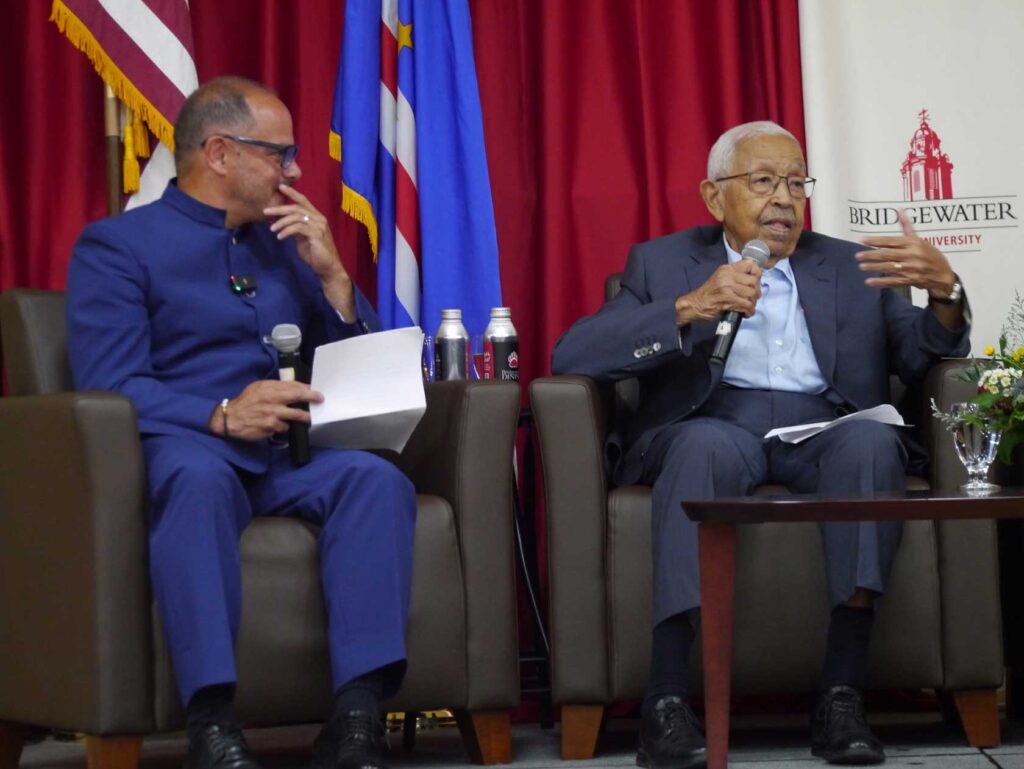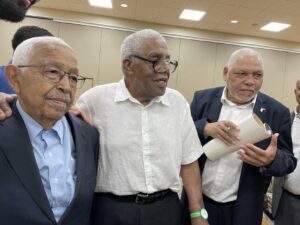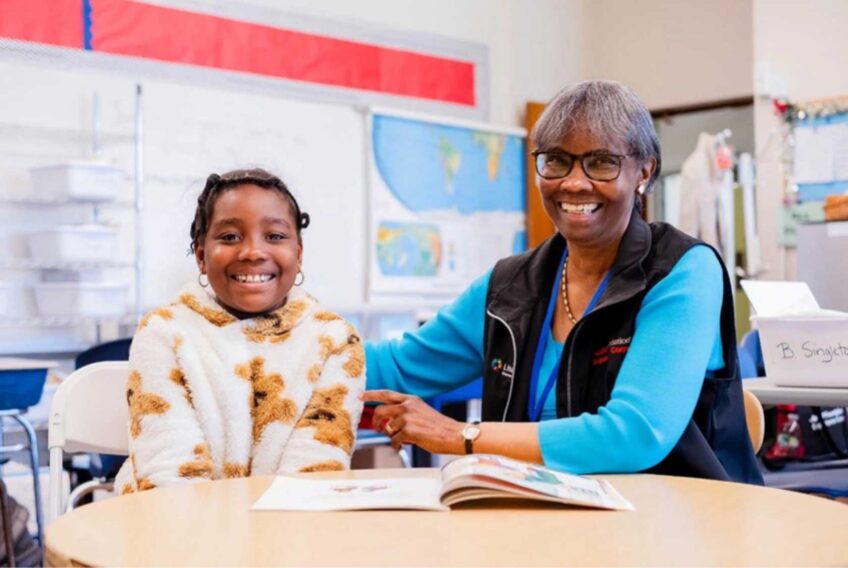Cape Verde’s first prime minister reflects on struggle for independence
Hosted at Bridgewater State University, Pedro Pires addresses predominantly Cape Verdean audience

During a political career that stretched 36 years, Pedro Pires was widely recognized for his work in making Cape Verde an exemplary democracy ranked highly for its leaders’ respect for individual rights and the rule of law.
As a military commander for the African Party for the Independence of Guinee-Bissau and Cape Verde (PAIGCV), Pedro Pires thought he understood what it meant to be a revolutionary. He had spent time with revolutionary leaders in Algeria, Cuba and the Soviet Union.
So when Amilcar Cabral, the leader of the revolution against Portuguese colonialism in Guinee Bissau and Cape Verde asked him, “Who is a revolutionary?” Pires had a ready answer.
“I started talking about what would be a revolutionary, and he said, ‘No, no, no. It’s not that,’” Pires recalled, speaking through a translator. “‘For you to be a revolutionary, you have to be honest. That’s the simple requirement. Everything goes around this.’”
Pires, who went on to become the first prime minister of the newly liberated republic of Cape Verde, seems to have taken that lesson to heart. During a political career that stretched 36 years and included six years as prime minister and 10 as president, Pires was widely recognized for his work in making Cape Verde an exemplary democracy ranked highly for its leaders’ respect for individual rights and the rule of law.
Pires was hosted at Bridgewater State University last Thursday by the Pedro Pires Institute for Leadership, an organization which promotes scholarly research on Cape Verde. As the nation nears the 50th anniversary of independence on July 5, the university awarded Pires an honorary doctorate.

Pedro Pires, former prime minister and president of Cape Verde, chats with Tony Gonçalves, who fought in the war of independence and Ulysses Gonçalves, a local activist. PHOTO: YAWU MILLER
Introducing Pires before his address to a predominantly Cape Verdean audience, Angelo Barbosa, who heads the Pedro Pires Institute, praised him as a “living symbol of Cape Verdean independence who fought for the future of Cape Verde.”
In his address, Pires answered questions posed by Professor João Rosa and spoke about the nation’s fight for independence and its decades-long quest for good governance.
It wasn’t an easy feat. While Pires’ party, the PAIGCV led the armed struggle against the Portuguese, fighting primarily in Guinee-Bissau at the same time independence movements were engaged in armed struggle against Portugal in Angola and Mozambique, two other parties emerged to challenge the PAIGCV in Cape Verde.
In the end, Pires’ party negotiated independence with Portugal in December of 1974 and formally declared independence from the European nation on July 5, 1975. The party parted ways with the Guinee Bissau movement for independence in 1980 and became the PAICV during its more than 15 years of single party rule in Cape Verde — a trajectory mirrored in many anti-colonial movements around the world.
But in 1990, under pressure from activists in Cape Verde, the PAICV ushered in multiparty elections, paving way for the rival Movement for Democracy (MpD) to take power. The MpD presided over a period of neo-liberalism that was at odds with the socialist orientation of the republic’s first 15 years.
Pires returned to government as president in 2001, when the PAICV was voted back into power.
Pires led Cape Verde with humility, a trait he learned while fighting in Guinee-Bissau.
“In my experience during the struggle for liberation, I had a little more education than most of my colleagues,” he said during his address at Bridgewater State. “I had to be on the level of everyone else so I could communicate with them. This helped me understand people. We have to communicate with each other, but we have to be respectful with each other.”
During the armed struggle, the PAICV faced the much-better resourced Portuguese armed forces. Lacking an air force or navy, the insurgents were outgunned. To this day, Pires finds their victory miraculous.
“I ask myself ‘How was it possible — how could we do it?’” he said. “I think we had two things we were carrying with us: inexperience and ignorance. At some points, we had no control over the situation. Of course you’re going to make mistakes.”
Coming out of armed struggle, the PAICV was almost entirely male-led, with no women holding positions of power. Pires acknowledged that a culture of sexism under Portuguese colonialism in Cape Verde and Guinee-Bissau that excluded women. That sexism was among the factors that propelled the MpD to power in 1991.
“We had to stop the pre-conceived notions that had in our minds that underestimated women,” he said. “If it wasn’t for women, Cape Verde would have failed. It is the reality.”
In his remarks, Pires acknowledged the importance of the global Cape Verdean diaspora in the success of Cape Verde, referring the country as a global nation.
“For us, the idea of a nation is more than just a territory,” he said. “It would be very difficult to survive without its diaspora.”
The island nation has little in the way of national resources. Over its history, it has been subject to droughts and famines. Arguably, the archipelago’s main export over the centuries has been its people. While there are 593,000 people residing on its nine islands, there are thought to be 500,000 Cape Verdean immigrants and descendants living in the U.S., primarily in Boston, southeastern Massachusetts communities such as Brockton and New Bedford and Providence, Rhode Island. Other Cape Verdean diaspora communities live in Portugal and other European Union countries, in Lusophone African nations such as Angola and Mozambique and in Senegal.
The nation’s growing tourism sector and remittances from expatriate communities drive Cape Verde’s economy.
“In the beginning, we didn’t have this notion of how connected we were,” he said.
Now as Cape Verde faces many of the same challenges confronting nations in the developing world — climate change, increasing inequality and disruptions in global trade, Pires says the nation should look to its diaspora for answers.
“I think we should all have a coming together of the general states of Cape Verde and think about Cape Verde 25 years from now, 30 years from now,” he said. “It’s something we should come to together. I think we are at a crossroads with all that’s happening in the world. It’s through reflection that we can come up with solutions. That’s how we can build a future.”
This story originally appeared in flipsidenews.net.







